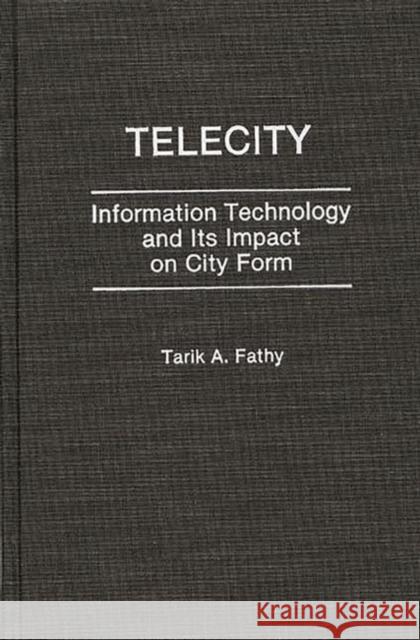Telecity: Information Technology and Its Impact on City Form » książka
Telecity: Information Technology and Its Impact on City Form
ISBN-13: 9780275938147 / Angielski / Twarda / 1991 / 176 str.
This study examines the growth of the information society and the impact of its technologies on city form and urban life. It establishes a theoretical framework that integrates the consequences of technology on the physical city, the dynamics of its economic activities and location decisions, and its social processes.
Tarik A. Fathy's main concern in this work is the relationship between socioeconomic forces of social change and the physical transformation process of the existing city in Western countries. The focus is on the influence of technology, not as an autonomous or deterministic factor, but as an analytical element in order to investigate which form of the city accommodates these social changes and which structure appropriates them. The complexity of the social impact of technology and the broad interests of many disciplines in technological change foreshadow an innovative approach that establishes the influence of current social transformations and their forms in urban life. Fathy argues that the revolutionary use and application of information technologies produces a telecity--a critical mass of inhabitants engaged in interactive communication networks where remote services, facilities, and work dominate life. He finds that this new telecity is strikingly different in physical layout and needs, and economic and social processes from the nineteenth- and early twentieth-century city. He concludes this study of the telecity concept by proposing four public policy implications. Scholars and designers in the fields of urban studies, urban planning, sociology, and urban/regional economics will find this work of great interest.











